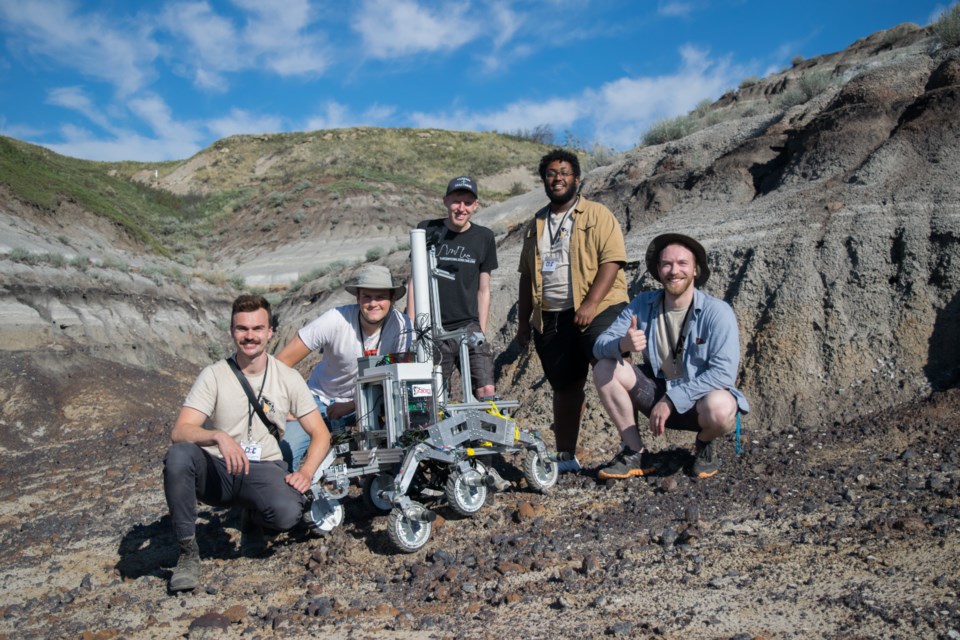Most teams play it safe when it comes to the Canadian International Rover Challenge (CIRC) – they just want a robot that works properly, gets the job done.
The University of Guelph robotics team, however, took a different approach this year with risky designs and some crafty problem-solving involving a dollar store spatula.
The CIRC is an annual summer event that runs over the course of four days in the badlands of Alberta, putting student-built rovers to the test through theoretical challenges on a simulated Mars, with competitors coming from across Canada and the U.S.
The team, made up of around 25 engineering students, has only been to the competition once before, landing sixth place in 2018.
But they took a gamble on their design this year and paid the price, coming in 11th out of 13 teams.
“We wanted to do something that was more realistic, more interesting,” said Zion Maynard, vice-president of external affairs for the club.
So they went with more realistic six-wheel suspension, which is what a real Mars rover would have. But it backfired: while the extra two wheels gave them great traction, their suspension didn’t perform as well.
Suspension is key for a Mars Rover, because the terrain on Mars is so uneven. Good suspension keeps it from tipping over.
It's a feature only a few other teams had, the rest having four – which is what UGRT did in 2018. They were, however, the only ones to include power steering, which makes it easier to turn at lower speeds.
The arm of their rover also broke during their dexterity task. They had two replacements, but those didn’t last long. Not wanting to forfeit the task, with no hardware store around, they were left with just one option: quickly run to the nearest dollar store to replace the arm with whatever would do the trick.
They finished the task, which required the rover to man a power switch board, with a spatula.
“That was definitely was a lot of troubleshooting,” he said. “We actually did pretty well with the spatula.”
Even though they didn’t win, Maynard said they’re still incredibly proud of their performance.
“Failing is the first attempt at learning,” he said. “I think we did really good overall. I'd say it was probably one of the lowest cost, but the most complex models there.”
But more importantly, he said, they don’t compete to win.
“We don't want to do what we know can win the competition, because at the end of the day, even though it's a competitive situation, we want to do this so that we (can) build skills to take into the field.”
And on top of that, they want to have fun.
They plan on organizing local meetups with other universities every few months for smaller unofficial rover challenges similar to the CIRC.
The team plans on revamping their rover for next year’s competition in the coming weeks, and should have a fully-functioning rover by January.
